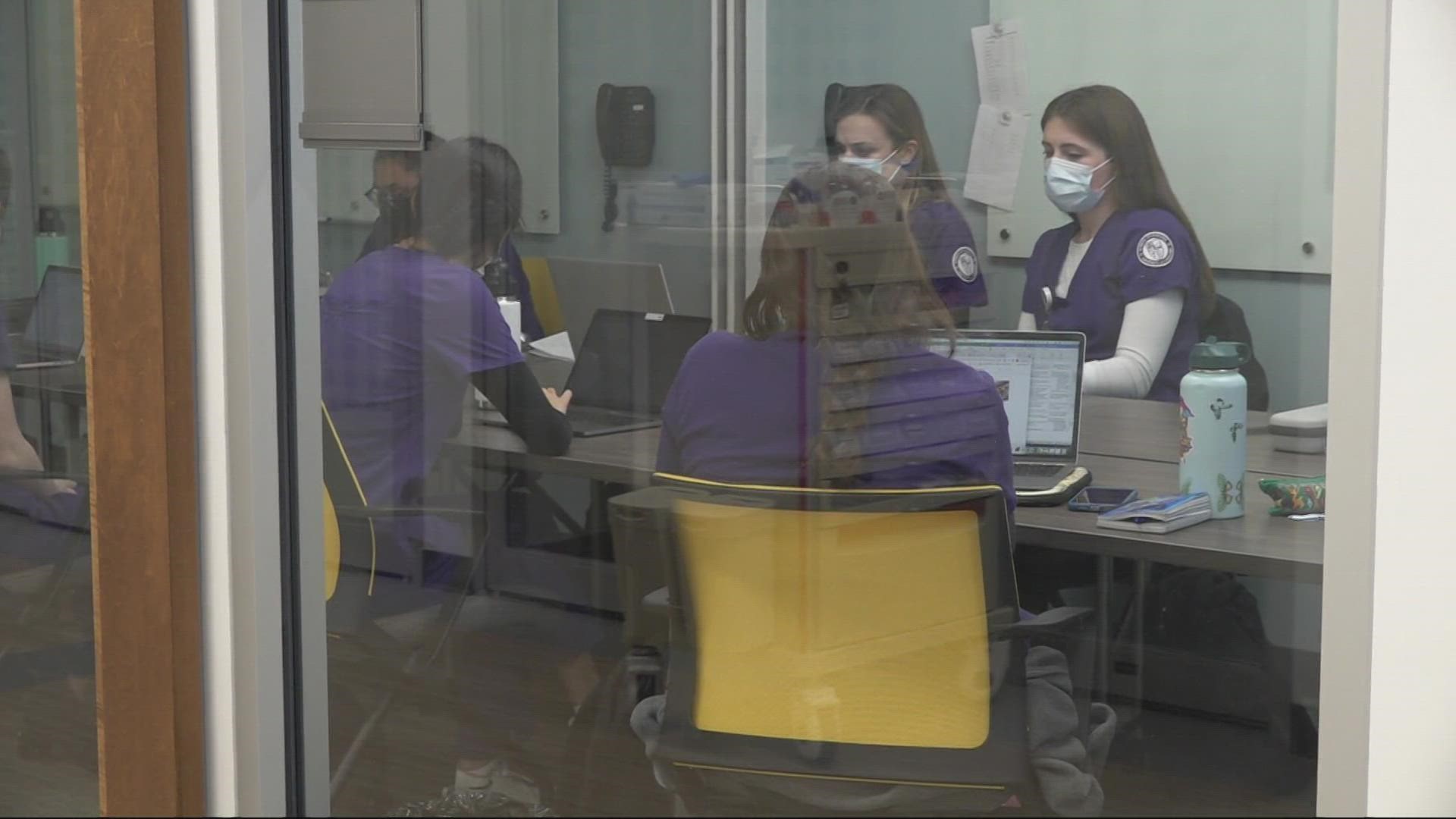PORTLAND, Ore. — Hospitals are facing a worsening nurse shortage, with burnout leading many to leave the healthcare profession for good. Amidst that crisis, nursing programs in the Portland area are working to meet a demand for skilled workers.
At the University of Portland, more than 900 students are currently enrolled in the nursing school. Senior Alecia Rollins is one of those students.
"In high school, I loved my science courses and I could just kind of envision myself being a nurse, so I just went for it. It was probably one of the best decisions I've ever made," she said.
Rollins isn't regretting her decision, even as the pandemic rages on.
"If anything, being a student nurse in this pandemic has shown me how much I am needed and how much I can make an impact."
"For them to make that decision, that this is still a profession they want to come into, they are passionate about it. They are committed. It really is this calling," said Dr. Casey Shillam, Dean of the University of Portland's School of Nursing, "We know that the nursing workforce is in a crisis. They are absolutely exhausted. They're feeling burnt out. They're feeling that they really need to have that additional support, and we're seeing nurses leave the workforce because of that."
Now more than ever, her students have to be ready to meet the need upon graduation. And they're not just using mannequins to train - they're also going through realistic simulations.
Nursing students also run through all types of medical situations with live actors, as the rest of the class observes the interaction in real time.
"They then go back into that debriefing room and that's where they're able to deconstruct what happened - what went into the decisions that they made and then talk about that in a safe space with colleagues and faculty, who help them continue to build that skill," Shillam said.
Dr. Shillam said simulation is the future when it comes to teaching nursing students as a highly effective way to build clinical reasoning judgement.
But she said, there needs to be an emphasis, too, on bringing these new nurses into the fold when they graduate. Dr. Shillam explained how her students' clinical placements in hospitals were often put on pause during the pandemic.
"Students have not been able to consistently get those experiences so when they are going into practice as a new graduate, they haven't had the experience that the health system is used to them having," she said, "I think that future is a wide open canvas right now. We know that we have some really great solutions and we are working on putting those into place. I think that the education pipeline for people coming into the profession is really where we need to focus first and foremost."
Despite hurdles ahead, Rollins and her fellow classmates are ready to be part of the change for the better.
"It is a little daunting to hear that so many nurses are stepping away from the bedside," she said, "Healthcare is changing after the pandemic, and I think our generation of nurses can really make an impact."

